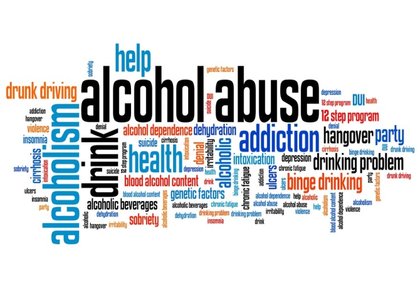- Home
- Editorial
- News
- Practice Guidelines
- Anesthesiology Guidelines
- Cancer Guidelines
- Cardiac Sciences Guidelines
- Critical Care Guidelines
- Dentistry Guidelines
- Dermatology Guidelines
- Diabetes and Endo Guidelines
- Diagnostics Guidelines
- ENT Guidelines
- Featured Practice Guidelines
- Gastroenterology Guidelines
- Geriatrics Guidelines
- Medicine Guidelines
- Nephrology Guidelines
- Neurosciences Guidelines
- Obs and Gynae Guidelines
- Ophthalmology Guidelines
- Orthopaedics Guidelines
- Paediatrics Guidelines
- Psychiatry Guidelines
- Pulmonology Guidelines
- Radiology Guidelines
- Surgery Guidelines
- Urology Guidelines
UPSTF issues new guidance on unhealthy alcohol use

The UPSTF released new guidelines on the effectiveness of screening and counseling to reduce unhealthy alcohol use.
The new guideline was issued to update the US Preventive Services Task Force (USPSTF) 2013 recommendation on screening for unhealthy alcohol use in primary care settings. The term “alcohol misuse,” used in the 2013 recommendation, has been replaced by the term “unhealthy alcohol use.”
The USPSTF recommends screening for unhealthy alcohol use in primary care settings in adults 18 years or older, including pregnant women, and providing persons engaged in risky or hazardous drinking with brief behavioral counseling interventions to reduce unhealthy alcohol use.
The USPSTF uses the term “unhealthy alcohol use” to define a spectrum of behaviors, from risky drinking to alcohol use disorder (AUD). The National Institute on Alcohol Abuse and Alcoholism (NIAAA) defines “risky use” as exceeding the recommended limits of 4 drinks per day (56 g/d based on the US standard of 14 g/drink) or 14 drinks per week (196 g/d) for healthy adult men aged 21 to 64 years or 3 drinks per day or 7 drinks per week (42 g/d or 98 g/week) for all adult women of any age and men 65 years or older.
Read Also: Modest alcohol intake reduces mortality in NAFLD
The key shreds of evidence included are:
- The USPSTF found no studies that directly evaluated whether screening for unhealthy alcohol use in primary care settings in adolescents and adults, including pregnant women, leads to reduced unhealthy alcohol use; improved risky behaviors; or improved health, social, or legal outcomes.
- The USPSTF found adequate evidence that brief behavioral counseling interventions in adults who screen positive are associated with reduced unhealthy alcohol use.
- There were reductions in both the odds of exceeding recommended drinking limits and heavy use episodes at 6- to 12-month follow-up.
- In pregnant women, brief counseling interventions increased the likelihood that women remained abstinent from alcohol use during pregnancy. The magnitude of these benefits is moderate.
- The USPSTF found inadequate evidence that brief behavioral counseling interventions in adolescents were associated with reduced alcohol use.
- The USPSTF bounds the harms of screening and brief behavioral counseling interventions for unhealthy alcohol use in adults, including pregnant women, as small to none, based on the likely minimal harms of the screening instruments, the noninvasive nature of the interventions, and the absence of reported harms in the evidence on behavioral interventions.
- The USPSTF found inadequate evidence on the harms of screening and brief behavioral counseling interventions for alcohol use in adolescents.
Read Also: Alcohol abuse cause of 3 million deaths a year, mostly men : WHO
The key recommendation is as follows:
The USPSTF recommends screening for unhealthy alcohol use in primary care settings in adults 18 years or older, including pregnant women, and providing persons engaged in risky or hazardous drinking with brief behavioral counseling interventions to reduce unhealthy alcohol use.
Moreover, the USPSTF concludes that the evidence is insufficient to determine the benefits and harms of screening for unhealthy alcohol use in the primary care setting in adolescents aged 12 to 17 years.
For full information log on to https://jamanetwork.com/journals/jama/fullarticle/2714537

Disclaimer: This site is primarily intended for healthcare professionals. Any content/information on this website does not replace the advice of medical and/or health professionals and should not be construed as medical/diagnostic advice/endorsement or prescription. Use of this site is subject to our terms of use, privacy policy, advertisement policy. © 2020 Minerva Medical Treatment Pvt Ltd